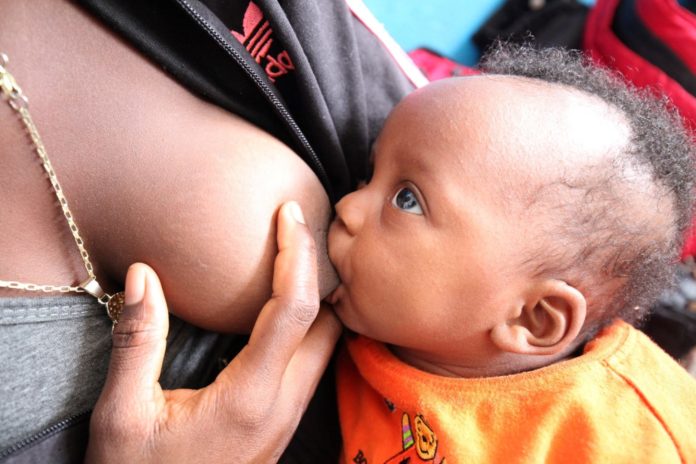The Liberian legislature has passed a bill making it mandatory for mothers to breastfeed their children until the age of six months.
Our Legislative correspondent in Monrovia quotes the House of Representatives as saying that the bill aimed to make breastfeeding ‘a duty and not an option’ for able mothers.
The House at the same time argued that it is the right of every child to be breastfed for six months and that the bill is designed to help “nurture a strong relationship between a mother and child.
“Breastfeeding is an integral part of human existence on earth and that breast milk supplies, among other things, contains nutrients in the proper proportion which, if it must be replaced, should be done with a substance that serves the same purpose as breast milk, considering that it is imperative for the replacement of breast milk when there exist medical or other situations that threaten the survival of an infant’s or young child’s life,” the House’s bill disclosed.
The House added that the bill’s primary goal is to protect and promote breastfeeding, as mothers are inundated with “incorrect and biased information” through advertising and unsubstantiated health claims. It says such a situation can distort parents’ perceptions and undermine their confidence in breastfeeding, with the result that far too many children miss out on its many benefits.
Breast feeding in Liberia
According to a 2020 UNICEF report in Liberia, only 5 out of every 10 babies under six months are exclusively breastfed in Liberia.
The organization said the costs of not breastfeeding are enormous, and it costs Liberia US$200,000 annually to treat children with diarrhea and pneumonia and type II diabetes in mothers that visit health facilities due to inadequate breastfeeding, according to the UNICEF report.
It says Liberia stands to lose more than US$14 million a year due to future cognitive losses associated with not breastfeeding. WHO and UNICEF recommend that babies are fed nothing but breast milk for their first 6 months, after which they should continue breastfeeding – as well as eating other safe and nutritionally adequate foods – until 2 years of age or beyond.
In that context, the WHO Member States including Liberia has made a commitment to increasing the rate of exclusive breastfeeding in the first 6 months of life to at least 50% by 2025 as one of a set of global nutrition targets.
A 2019 poll conducted by UNICEF in 10 countries in West and Central Africa revealed that in Liberia 56% of youth incorrectly believe that babies need water in the first six months of life.
Additionally, 46% percent of respondents thought that babies should be given something in addition to breastmilk to grow strong and healthy.
Meanwhile, in studies in low- and middle-income countries, babies who receive liquids and food in addition to breastmilk before six months of age are at greater risk of diarrhea and respiratory infections. They are almost three times more at risk of dying than those who are exclusively breastfed.
The House bill also mandates mothers to breastfeed their child in any public or private location and when concurred by the Senate, all public and private institutions would have to create a ‘nursery’ for the breastfeeding mothers.
The House says the bill was passed based on the need of protecting babies’ rights and not the rights of mothers and it also aimed to legitimately regulate food for toddlers or infants or young children to substitute breastmilk when the need arises.
It also intends to ensure that the marketing of requisite substitutes for breastmilk is properly regulated to avoid the import and sale of substances that might affect infants and young children.
Rivercess County District #2 Representative Byron W. Zahwea who introduced the legislation told reporter bill will ensure that the marketing of requisite substitutes for breastmilk is properly regulated to avoid the import and sale of substances that might affect infants and young children.
The legislation is also part of the World Health Organization (WHO) protocol and that the Ministry of Health, through its Nutrient Division.






















